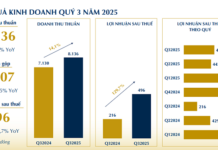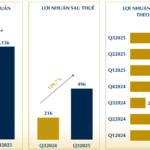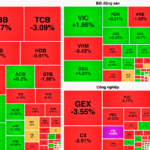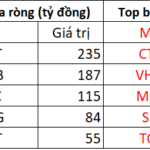In transactions involving the purchase of off-plan properties, buyers often find themselves at a disadvantage as the contract is usually drafted by the developer with input from a team of professional lawyers. The terms are largely skewed in favor of the seller, leaving buyers with little to no room for negotiation.
According to Lawyer Bui Van Thanh, head of the New Sun Law Office, the institution of guaranteeing future housing carries special significance. It serves not only as a legal tool to protect buyers from risks arising from the developer’s failure to fulfill their commitments but also enhances the enterprise’s accountability to the bank, regulatory authorities, and society. To obtain a guarantee, developers must demonstrate their financial capabilities and reputation, thereby curbing instances of illegal capital mobilization.
For banks, this institution enhances their role in monitoring guaranteed capital, ensuring compliance with State Bank regulations, and assuming responsibility for capital preservation. From a state management perspective, it serves as a tool to develop a transparent and sustainable real estate market while maintaining social welfare.

Lawyer Bui Van Thanh – Head of the New Sun Law Office, VMC Mediator, VIAC Arbitrator.
|
New Law Tightens Real Estate Guarantees
The 2023 Real Estate Business Law, which comes into effect on August 1, 2024, introduces a series of innovations to address previous limitations. Dr. Nguyen Dinh Tho, a member of the Executive Committee of the Vietnam Bar Federation, shared that compared to the 2014 Law, the new regulations enhance the role of banks and expand the choices available to buyers.
First, project investors are required to obtain bank approval for guarantees before selling or leasing future houses. Previously, the 2014 Law (Article 56) only stipulated the bank’s obligations in cases where the investor failed to deliver, without clarifying the preceding process.
Second, the scope of guaranteeing banks has been expanded to include branches of foreign banks legally operating in Vietnam, in addition to domestic commercial banks.
Third, there is now greater clarity regarding the scope of guarantees, encompassing the amount the investor has received in advance from the buyer/lessee and other agreed-upon amounts in the contract, in the event that the investor fails to deliver the house as promised.
Fourth, buyers are empowered to choose whether to have a guarantee for the investor’s financial obligations. They may opt for no guarantee to obtain a lower price, excluding the guarantee fee. In such cases, the investor and the buyer must enter into a written agreement at the time of contract signing.
Fifth, improvements have been made to the conditions for granting guarantees. Investors are now required to provide a written response from the provincial-level state management agency for real estate business (Department of Construction) confirming that the housing meets the conditions for sale or lease. Previously, the law only required a notification and did not mandate this document.
Sixth, the process of implementing guarantees has been standardized. State Bank Circular No. 61/2024/TT-NHNN provides a clear procedure, from signing the guarantee agreement to issuing the commitment letter and guarantee letter to the investor and buyer, respectively.
Seventh, the duration and maximum guaranteed amount have been specified. The validity period of the guarantee agreement covers the entire duration of the guarantee obligations. The maximum guaranteed amount for each buyer is equivalent to the total amount that the investor is allowed to receive in advance from the buyer.

Dr. Nguyen Dinh Tho – Member of the Executive Committee of the Vietnam Bar Federation.
|
Practical Loopholes Remain
Despite the improved legal framework, challenges persist in its practical application. Lawyer Bui Van Thanh points out that the scope of guarantees is still not entirely clear, especially regarding the phrase “other amounts if any.” For instance, zero-interest loan packages from buyers beyond 90-95% of the contract value are often not guaranteed, leading to difficult-to-resolve disputes.
Therefore, buyers should clearly define these amounts, including discounts and interest accrued in the contract, to avoid complications when disputing with banks or developers. Contracts are usually prepared by developers and contain complex clauses favoring the seller, putting buyers at a disadvantage as they may struggle to fully understand the terms.
Some developers are also slow to provide guarantee letters or only do so superficially. Buyers are often directed to use the developer’s chosen bank, raising concerns about vested interests. Additionally, the high cost of guarantees drives up housing prices.
Another risk arises from the law permitting buyers to choose not to have a guarantee. For those with limited legal knowledge or who are tempted by lower prices, signing a non-guaranteed contract implies accepting significant risk if the developer is incompetent or lacks integrity.
Furthermore, the scope of guarantees primarily covers the advance payment, excluding incidental costs such as interest, late fees, or early repayment penalties. Meanwhile, banks act as both guarantors for developers and lenders to buyers, potentially prioritizing credit obligations over guarantee obligations.
In reality, many banks require buyers to produce a court judgment or arbitral award before fulfilling guarantee obligations. Lawyer Thanh also questions whether the Law on Consumer Protection clearly covers buyers of off-plan properties.
Considering Guarantee Scope Expansion
According to Dr. Nguyen Dinh Tho, a bank guarantee serves as a “financial shield” that mitigates risks and establishes a mechanism for supervising developers. However, this mechanism currently only applies to the obligation to deliver the house on time, excluding other issues such as delivery quality, design changes, or other contract violations.
Allowing buyers to opt for no guarantee may expose inexperienced or price-sensitive buyers to significant risks, especially when dealing with developers who lack capacity or integrity.
“The current bank guarantee institution is limited to the obligation to deliver the house on time. Other issues, such as delivery quality, changes in construction methods, or other contract violations, fall outside the scope of the guarantee, disadvantaging buyers. Consideration should be given to expanding the scope of guarantees to include contract violations related to quality and other matters to better protect consumers,” said Lawyer Nguyen Dinh Tho.
“Financial and Guarantor Issues for Off-Plan Property Investment.”
Within the context of the dynamic real estate market and evolving legal landscape, Attorney Vu Thi Que, a esteemed member of the Hanoi Bar Association, shed light on crucial updates and considerations regarding guarantees in future real estate transactions as outlined in the 2023 Real Estate Business Law.
Revolutionizing the Real Estate Game: Unveiling the Latest Trends and Insights Effective August 1st
The 2023 Real Estate Business Law, which comes into effect on August 1, 2024, introduces several significant changes to the real estate industry. One of the key highlights of this law is the requirement for all real estate transactions to be made via bank transfer. This adds a layer of transparency and security to the process, ensuring that all payments are properly documented and traceable. Additionally, the law mandates that the purchase price stated in the contract must accurately reflect the actual transaction value, promoting honesty and integrity in the industry. Another notable change is the restriction on the maximum amount that can be paid for an off-plan property, which is now limited to 50% of the total value.










































